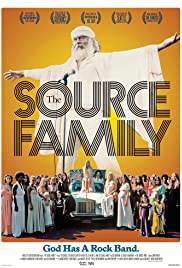
A feminist documentary about female relationships, especially between mother and daughter.
You May Also Like

The dysfunctional Chinese justice system allows citizens with grievances against their local governments to petition the court to clear or correct their record. Yet in order to do so, the petitioners must travel to Beijing to file paperwork and wait an indefinite period to plead their case. Following the saga of a group of petitioners over the years of 1996 and 2008, Petition unfolds like a novel by Zola or Dickens. This was filmed surreptitiously from the point of view of the petitioners, and not the justice officials, the police, or those heavies sent by the municipalities.

This film seeks to rescue the role of filmmaker Neville D’Almeida by using many rare images, numerous interviews, vast archival and audiovisual material.

A review of the wild New York City nightlife of the 90s. The cast of characters who made up the infamous Club Kids speak candidly about that era, culminating with Alig’s release from incarceration.

The 400 million people of China are heirs to a great civilization, as their pagodas and stone lions can attest. But they are under attack from the Japanese. Civilian refugees walk, stumble, crawl to escape the destruction of their cities… While in the China of tradition, water buffalo still work the paddies and camels cross the desert, modern China is now a republic founded by Dr. Sun Yat-sen, with modern schools, heavy industry, large engineering projects… The government of Chiang Kai-shek resists the Japanese invasion from the coast. Madame Chiang receives a cheque from the U.S.A. for war relief. War production continues in distant villages safe from the grasp of the Japanese. With modern weapons the Chinese are pursuing their struggle behind enemy lines. And still their opponent persists in his reprisal bombings of civilian targets. “Will these people win?”

A feature documentary film set in Hollywood, examining a radical experiment in ’70s utopian living. The Source Family were the darlings of the Sunset Strip until their communal living, outsider ideals and spiritual leader Father Yod’s 13 wives became an issue with local authorities. They fled to Hawaii, leading to their dramatic demise.

“Trouble the Water” takes you inside Hurricane Katrina in a way never before seen on screen. The film opens the day before the storm makes landfall–just blocks away from the French Quarter but far from the New Orleans that most tourists knew. Kimberly Rivers Roberts, an aspiring rap artist, is turning her new video camera on herself and her Ninth Ward neighbors trapped in the city. Weaving an insider’s view of Katrina with a mix of verité and in-your-face filmmaking, it is a redemptive tale of self-described street hustlers who become heroes–two unforgettable people who survive the storm and then seize a chance for a new beginning.

Hunters have disappeared from wildlands without a trace for hundreds of years. David Paulides presents the haunting true stories of hunters experiencing the unexplainable in the woods of North America.

A celebration of the 20th anniversary of Metallica’s groundbreaking S&M concerts and album recorded with the San Francisco Symphony as legendary conductor Michael Tilson Thomas leads a portion of the show, kicking off his final season in San Francisco. Recorded live on September 6th and 8th.


Balifilm was originally commissioned as a stage performance, created from diary images and sounds collected in 1990 and 1992 by Peter Mettler on the island of Bali. The soundtrack is a live recording of eight Gamelan musicians playing the bronze and wooden instruments of Indonesia during the projection of the film. balifilm is a personal, lyrical observation and expression of the creative pulse of an extraordinary culture.

Phil Wang riffs on reheated rice, octopus intelligence and the importance of fact-checking in this special filmed at Shakespeare’s Globe in London.